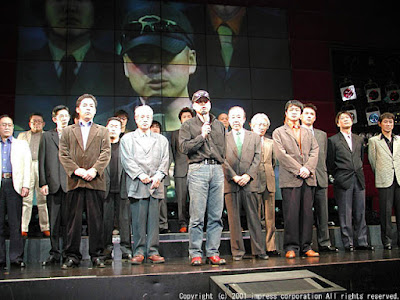Ask any Dreamcast fan about Capcom's legacy on the console and you'll be told that good old Cappy are probably as synonymous with the box of dreams as even Sega themselves. Then, if you asked those same fans what kind of games they'd associate Capcom's mighty stint on the Dreamcast with, they'd most likely tell you "fighters", maybe even shoot-em-ups or survival horror. No one, and I repeat, no one would respond: "a text-based near future crime thriller featuring a digitised actress".
Bounty Hunter Sarah: Holy Mountain no Teiō was released onto the Dreamcast and PlayStation on the 24th of May 2001. Published by Capcom, this Japanese-exclusive "sound novel" (more on that in a moment) was developed by Flagship, a fresh-faced independent studio founded by ex-Capcom developer Yoshiki Okamoto. With funding from Capcom, Nintendo and Sega, Flagship would develop or assist with the development of games from huge franchises such as Resident Evil, Kirby and The Legend of Zelda, before sadly closing its doors in 2007. Bounty Hunter Sarah was Flagship’s first and only original IP, with its big selling point being that its plot was written by the same scenario writer as Resident Evil 2, Noboru Sugimura, who had also left Capcom to be part of Flagship.
 |
| The staff of Flagship at a 2001 presentation |
The game's plot takes place in the year 2060, and revolves around Sarah Fitzgerald, a bounty hunter who roams the crime-ridden Neo Tokyo with the goal of assassinating a notorious mafia boss known as the "Lord of the Holy Mountain". The game's action-packed opening cinematic sets this all up really well, with plenty of flashy stop-motion spy stuff and enough explosions to make Michael Bay blush. But then when you start a new game, all that energy witnessed in the intro suddenly takes a turn as you soon realise that Sugimura's plot is told in the form of a "sound novel," a type of game fairly similar to a visual novel. For those not in the know, visual novels are...well, novels that are visual.
Some would argue that they aren’t really games due to them essentially being flashy reading exercises, with little interaction required from the player other than to progress countless paragraphs of text with a single button and, in the case of the most common type of visual novel, have them occasionally select a choice. Despite their text heavy nature, they still include plenty of varying background scenery and colourful characters (usually anime-style) to accompany the stories being told, and often feature plot lines that can devolve down branching paths to multiple endings, leading some to liken visual novels to interactive choose your own adventure books. Sound novels, on the other hand, while still including a decent helping of artwork, often have it serve as a backdrop to screens filled with text, with the game instead relying more on sound effects and music to immerse the player into the plot taking place (source).



